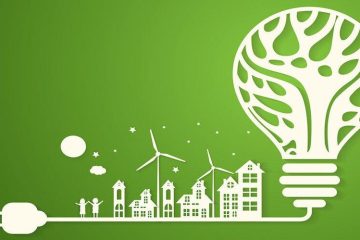Table of Contents
- The Importance of Energy Efficiency in Water Heaters
- Exploring Different Types of Energy Efficient Water Heaters
- Key Features to Look for in an Energy Efficient Water Heater
- Tips for Maximizing Efficiency and Reducing Costs
- Understanding Incentives and Rebates for Energy Efficient Upgrades
- Q&A
- Closing Remarks
The Importance of Energy Efficiency in Water Heaters
Understanding how energy efficiency translates into cost savings and environmental benefits is essential for any homeowner. Energy-efficient water heaters utilize advanced technologies to reduce energy consumption while maintaining optimal performance. By investing in these appliances, consumers not only lower their utility bills but also contribute to a more sustainable future. The reduced energy demand leads to fewer greenhouse gas emissions, making these systems an excellent choice for eco-conscious individuals.
When considering new water heaters, it’s important to be aware of the various options available that boast energy efficiency. Here are some key features to look out for:
- Insulation: Good insulation minimizes heat loss, ensuring that hot water stays hot longer.
- Heat Pump Technology: These units transfer heat from the air or ground to heat water, significantly reducing electricity usage.
- Smart Controls: Wi-Fi connectivity and smart thermostats allow for scheduling and remote monitoring, optimizing energy use.
To further illustrate the benefits of energy-efficient water heaters, consider the following table showcasing average savings and efficiency ratings of different types:
| Water Heater Type | Energy Factor (EF) | Annual Energy Cost | Estimated Savings |
|---|---|---|---|
| Conventional | 0.55 – 0.70 | $500 | — |
| Heat Pump | 2.00 | $200 | $300 |
| Tankless | 0.82 – 0.94 | $300 | $200 |


Exploring Different Types of Energy Efficient Water Heaters
When it comes to choosing an energy-efficient water heater, understanding the various types available is crucial. Tankless water heaters are a popular option, delivering hot water on demand without the need for a storage tank. This means they can lead to significant energy savings, as there’s no need to keep water heated constantly. Furthermore, these compact units are perfect for smaller homes or offices, where space can be a premium.
Heat pump water heaters are another excellent choice. These innovative devices work by transferring heat from the surrounding air to heat the water, making them significantly more energy-efficient than traditional electric models. While the initial cost might be higher, the long-term savings on energy bills can make this option very appealing, especially in moderate climates where the heat pump operates most efficiently.
Lastly, solar water heaters harness the power of the sun to provide hot water, offering an environmentally friendly option that significantly reduces carbon footprints. These systems typically consist of solar panels installed on the roof that capture sunlight, converting it into heat for the water. Although installation and system maintenance can be more complex and costly, the long-term savings and sustainable benefits often outweigh the initial investment.


Key Features to Look for in an Energy Efficient Water Heater
When selecting a water heater that prioritizes energy efficiency, one of the first features to consider is its Energy Factor (EF). This metric reflects the overall efficiency of a water heater, taking into account the amount of hot water produced per unit of fuel consumed over a typical day. A higher EF means better efficiency, leading to increased savings on energy bills. Typically, look for water heaters with an EF rating of at least 0.90 for gas units and 2.0 or greater for electric models.
Insulation is another crucial feature that enhances the energy-saving capabilities of a water heater. Better insulation reduces heat loss, allowing the unit to maintain water temperature for longer periods without using excess energy. Standard insulation values typically range from R-6 to R-16. Always check the heater’s insulation rating to ensure maximum energy retention, especially if the unit will be installed in a colder environment.
Lastly, consider the type of energy source utilized by the water heater. Electric water heaters are often easier to install and may integrate renewable energy sources such as solar power. On the other hand, gas water heaters tend to heat water faster. It’s essential to assess the availability and cost of these energy sources in your area, as well as exploring newer technologies like heat pump water heaters, which offer significant energy savings by transferring heat rather than generating it.


Tips for Maximizing Efficiency and Reducing Costs
To unlock the full potential of your energy-efficient water heater, regular maintenance is critical. Schedule annual check-ups to keep your unit running smoothly. During these inspections, professionals can clean components, check for leaks, and ensure the thermostat is correctly calibrated. This preventative measure not only extends the lifespan of your water heater but also helps in achieving optimal efficiency, ultimately saving you money on energy bills.
Adoption of smart technology can drastically improve your water heating experience. Devices like smart thermostats allow you to program heating schedules based on your usage patterns, helping to eliminate wasted energy. Additionally, consider investing in remote monitoring systems that alert you to discrepancies in performance or potential issues before they escalate. This proactive approach can significantly mitigate repair costs and enhance overall efficiency.
Using insulation strategically can also enhance the performance of your water heater. Insulating the hot water pipes helps to maintain water temperature, reducing the workload on your heater. Here’s a quick comparison of insulation types:
| Insulation Type | R-Value | Cost |
|---|---|---|
| Fiberglass | 3.5 – 4.5 per inch | Low |
| Foam Board | 5 – 8 per inch | Medium |
| Reflective or Radiant Barrier | Variable | Medium to High |
By combining regular maintenance, modern technology, and effective insulation, you can maximize the efficiency of your water heater while keeping costs to a minimum.


Understanding Incentives and Rebates for Energy Efficient Upgrades
Investing in energy-efficient upgrades, such as a modern water heater, can significantly reduce utility bills and promote a sustainable lifestyle. However, understanding the landscape of incentives and rebates available to homeowners is essential. These financial incentives can come in various forms, including:
- Federal Tax Credits: Many governments offer tax credits to encourage homeowners to invest in energy-efficient technology, substantially lowering the net cost of upgrades.
- Utility Rebates: Local energy providers often have rebate programs for customers who install approved energy-efficient systems or appliances.
- State and Local Programs: Various states have their own unique programs tailored to enhance energy efficiency, which can range from direct rebates to subsidized loans.
When considering these incentives, it’s advantageous to check the eligibility requirements, as they can differ based on factors like location, type of installation, or even the specific energy source used. Typically, you may find eligibility guidelines on the websites of energy providers or local government websites. Below is a simple table illustrating examples of potential savings:
| Incentive Type | Typical Savings | Eligibility |
|---|---|---|
| Federal Tax Credit | Up to $300 | Energy Star certified products |
| Utility Rebate | Varies ($50-$500) | Must be a customer of the utility provider |
| State Grants | Varies | Dependent on local program conditions |
By understanding these incentives and actively seeking them out, homeowners can make informed decisions that not only benefit their wallets but also contribute to a greener environment. Always stay updated on new opportunities, as these programs change frequently and may provide additional savings over time. Adopting energy-efficient measures has never been more accessible or financially beneficial.
Q&A
Q&A: Energy Efficiency Water Heaters
Q1: What is an energy-efficient water heater? A1: An energy-efficient water heater is designed to use less energy compared to traditional water heaters while delivering the same amount of hot water. These models utilize advanced technology to heat water more efficiently, which can significantly reduce energy bills and minimize environmental impact.Q2: What are the different types of energy-efficient water heaters? A2: There are several types of energy-efficient water heaters, including tankless water heaters, heat pump water heaters, solar water heaters, and high-efficiency storage water heaters. Each type uses unique technology to heat water effectively while consuming less energy.Q3: How does a tankless water heater improve energy efficiency? A3: Tankless water heaters heat water on demand, meaning they only use energy when hot water is needed. This eliminates the standby heat loss associated with traditional storage water heaters, allowing homeowners to save energy and reduce costs.Q4: Are ENERGY STAR-rated water heaters worth the investment? A4: Yes, ENERGY STAR-rated water heaters meet strict energy efficiency guidelines set by the U.S. Environmental Protection Agency. While the upfront cost may be higher, the long-term savings on energy bills and potential rebates can make them a cost-effective choice over time.Q5: How can I determine the right size energy-efficient water heater for my home? A5: The right size depends on your household’s hot water needs. Consider factors like the number of people in your home, peak usage times, and the types of appliances you use. For precise calculations, consult a professional who can help assess your specific requirements.Q6: What are some tips for maximizing the energy efficiency of my water heater? A6: To enhance energy efficiency, set your water heater temperature to 120°F, insulate the tank and pipes, and schedule regular maintenance. Additionally, reducing hot water usage and taking shorter showers can further contribute to energy savings.Q7: Is it difficult to install an energy-efficient water heater? A7: Installation can vary depending on the type of heater. While some homeowners choose to install tankless models themselves, it’s generally recommended to hire a professional to ensure proper installation and compliance with local codes, especially for gas and electric models.Q8: Can I retrofit my existing water heater to become more energy-efficient? A8: Yes, improvements can often be made to existing systems. Insulating your tank, using a water heater timer, or adding solar panels can enhance energy efficiency without needing a complete replacement. However, assess whether a new energy-efficient model would offer better long-term savings.Q9: What are the environmental benefits of switching to an energy-efficient water heater? A9: Energy-efficient water heaters require less energy to operate, resulting in lower greenhouse gas emissions. By using renewable energy sources, such as solar or heat pumps, homeowners can significantly reduce their carbon footprint and contribute to a more sustainable future.Q10: Where can I find more information about energy-efficient water heaters? A10: Several resources are available, including ENERGY STAR’s website, local utility companies, and home improvement stores. Consulting with HVAC professionals can also provide personalized insights tailored to your specific home and needs.This Q&A section aims to address common inquiries regarding energy-efficient water heaters, providing valuable information for readers looking to enhance their home’s energy efficiency.




0 Comments